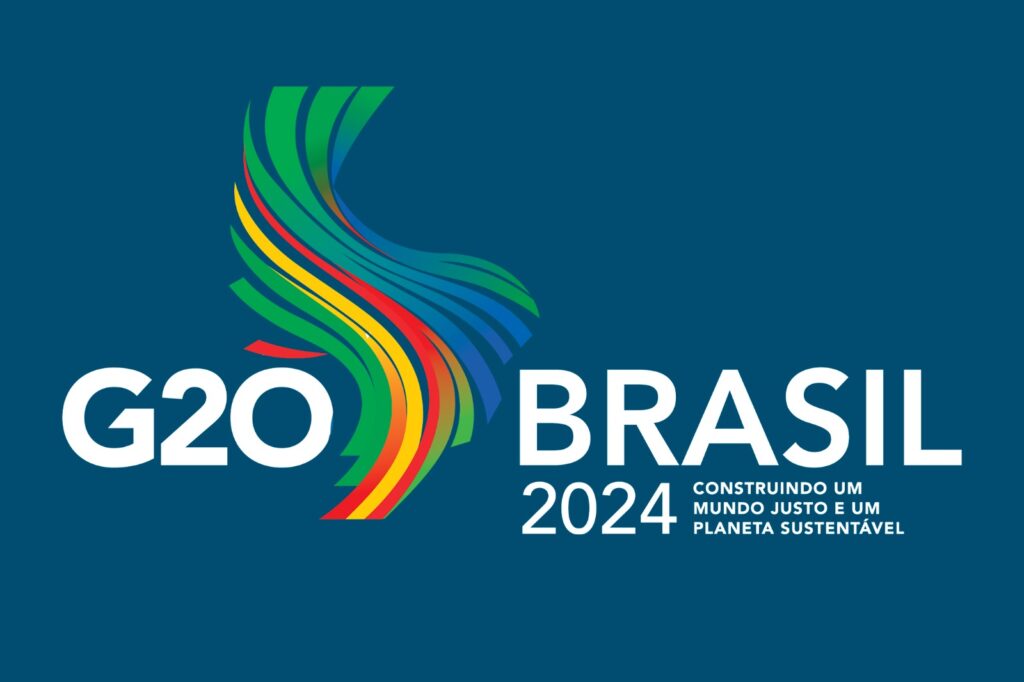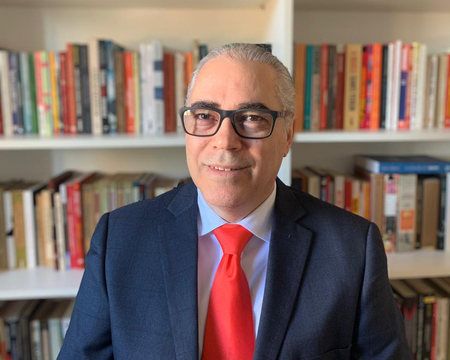Sign of the Times

Credit: Gov.br
Increasing collaboration between countries in the Global South is the best response to the selfishness of the US
Sign of the Times_Marcos Pires
By Marcos Cordeiro Pires, for China Daily* [Republicação] [Sul Global] [G20]
November is marked by three major global events: the APEC summit to be held in Peru from Nov 13 to 15; COP29, in Azerbaijan, from Nov 11 to 22; and the G20 summit, in Brazil, from Nov 18 to 19.
The Azerbaijani presidency of COP29 has defined two pillars of action: “raising ambition”, which aims to expand the implementation of ambitious and transparent national plans, and “enabling action”, which focuses on the role of finance in making resources available to face the climate crisis.
The APEC summit, with the slogan “Empower, Include, Grow”, will prioritize greater economic and technical cooperation, promoting prosperity and well-being for all people in the Asia-Pacific region, covering trade and investment for inclusive and interconnected growth, innovation and digitalization to promote the transition to the formal and global economy, and sustainable growth for resilient development.
 Source: X
Source: X
Brazil’s priorities for the G20 summit are the fight against hunger, extreme poverty and social inequality. It also prioritizes tackling the climate crisis and the urgency of an energy transition at the global level. The third focus is to engage the G20 in Brazil’s fight for the reform of global governance, mainly in financial organizations, to reflect that the countries of the Global South today have a political and economic weight that they did not have at the end of World War II, when many of them were still European colonies.
The overarching focus of the three events therefore is on the environment, sustainable development, human dignity and the better functioning of global governance. The four topics involve the urgent need for cooperation to reorganize the international economy more equitably. Each country must make its own contributions to solving these problems, shouldering its responsibilities and making the most of the possibilities. Different countries cannot be treated in the same way. It is unfair to demand that Papua New Guinea bear a similar burden to that of the United Kingdom for instance regarding greenhouse gas emissions.
It is important to emphasize once again the need for international coordination to overcome major global problems. Pollution and greenhouse gases do not respect national borders. Millions of hungry and desperate people are emigrating from their communities of origin because they cannot find decent living conditions. Climate change is exacerbating this problem, whether through floods and hurricanes or severe droughts that last for years. Just look at what is happening on the southern border of the United States. Mexicans, Guatemalans, Salvadorans, and Hondurans, migrate in search of a better life. However, the United States’ response has focused on repression and closing the borders. There is no action led by the world’s greatest power to address the causes of the emigration. There are no major development projects supported by the Washington government that would help develop the economies of Central American countries.
The presidential election of Donald Trump on Nov 5 is a warning sign for multilateralism. The history of his first administration and the promises made during the presidential campaign indicate that countries in the Global South will need to increase their cohesion and mutual support to overcome international challenges without the support of the US. After all, Trump has promised more than once to abandon clean energy policies in favor of fossil fuels. During the Republican National Convention in July, Trump said: “I will lower the cost of energy… We will drill, baby, drill.”
 (Archive) LAGOP Rally, December 9, 2016, Dow Hangar, Baton Rouge, Louisiana, Tammy Anthony Baker, Photographer (Flickr)
(Archive) LAGOP Rally, December 9, 2016, Dow Hangar, Baton Rouge, Louisiana, Tammy Anthony Baker, Photographer (Flickr)
The new government in Washington will continue to block multilateralism in terms of trade and maintaining open supply chains. It has also promised to prioritize the country’s industry and impose a new wave of import tariff hikes against China and across the board, including against its allies. It also promises to toughen negotiations to renew the trade agreement with Canada and Mexico. It is worth remembering that Trump paralyzed the activities of the World Trade Organization, and Joe Biden maintained this position.
Finally, the new US administration will negatively impact on the search for global collective solutions. In his first term, Trump withdrew the country from the World Health Organization, the United Nations Human Rights Council and the Paris Agreement.
We believe that the hosts of the APEC summit in Peru, the COP29 in Azerbaijan, and the G20 in Brazil will have to seek practical commitments that will not be subject to the scrutiny of the Washington government since the participation of President Biden and his advisors will be merely decorative, as the newly-elected government will not comply with determinations that violate the selfish principle of “America First”. Despite this, we should view the articulation in defense of multilateralism with optimism. Significant positive changes are occurring amid a very challenging situation. The distancing of the hegemonic power from major global issues is a great opportunity for the Global South to design a more inclusive international order. The BRICS grouping has all the credentials to lead this process. ![]()
 * Marcos Cordeiro Pires is a professor of international political economy at Sao Paulo State University in Brazil. The author contributed this article to China Watch, a think tank powered by China Daily. The views do not necessarily reflect those of China Daily.
* Marcos Cordeiro Pires is a professor of international political economy at Sao Paulo State University in Brazil. The author contributed this article to China Watch, a think tank powered by China Daily. The views do not necessarily reflect those of China Daily.
** Originally published at China Daily, November 15, 2024. This article does not necessarily reflect the opinion of OPEU or INCT-INEU.
*** About OPEU, or to contribute articles, contact editor Tatiana Teixeira. E-mail: tatianat19@hotmail.com. About our Newsletters, for press service, or other matters, contact Tatiana Carlotti. E-mail: tcarlotti@gmail.com.
Subscribe to our Newsletter and receive OPEU content by email.
Follow OPEU on Instagram, Twitter, Linkedin and Facebook and follow our daily posts.
Comment, share, send suggestions, be part of our community.
We are a unique Brazilian research observatory on the United States,
with weekly, free, non-profit content.





















